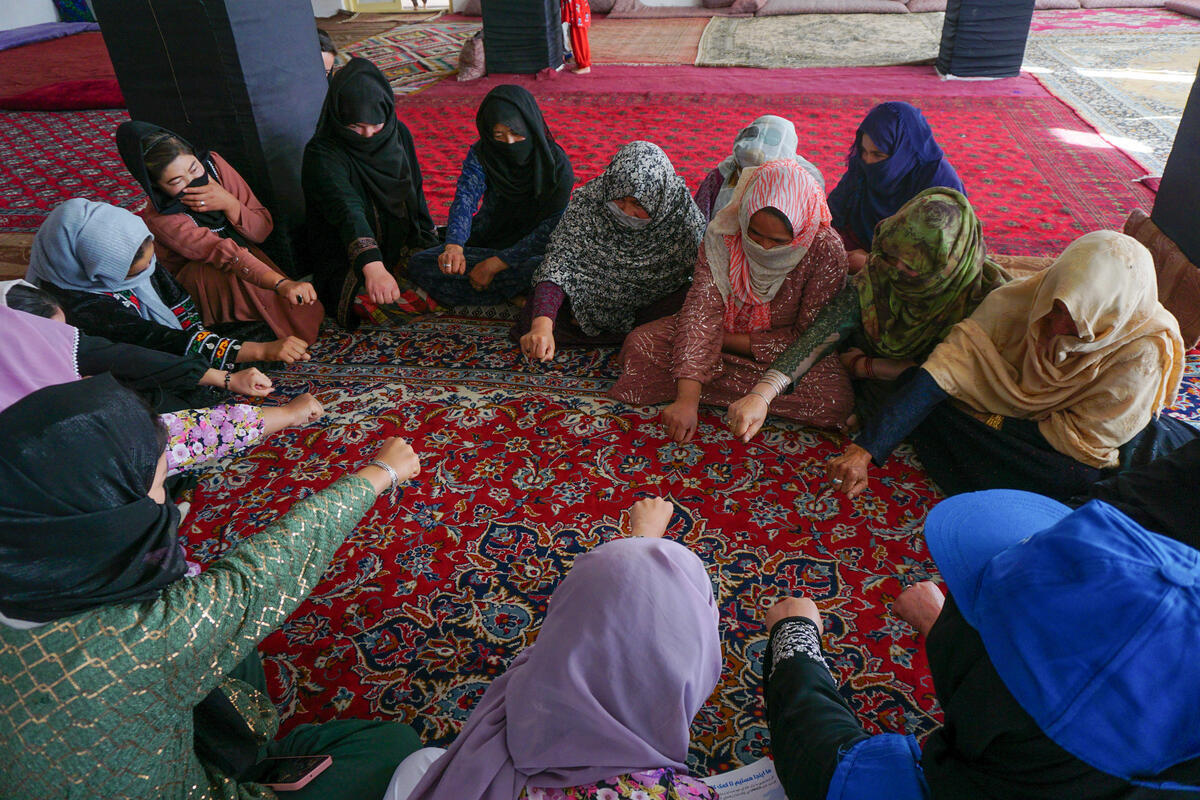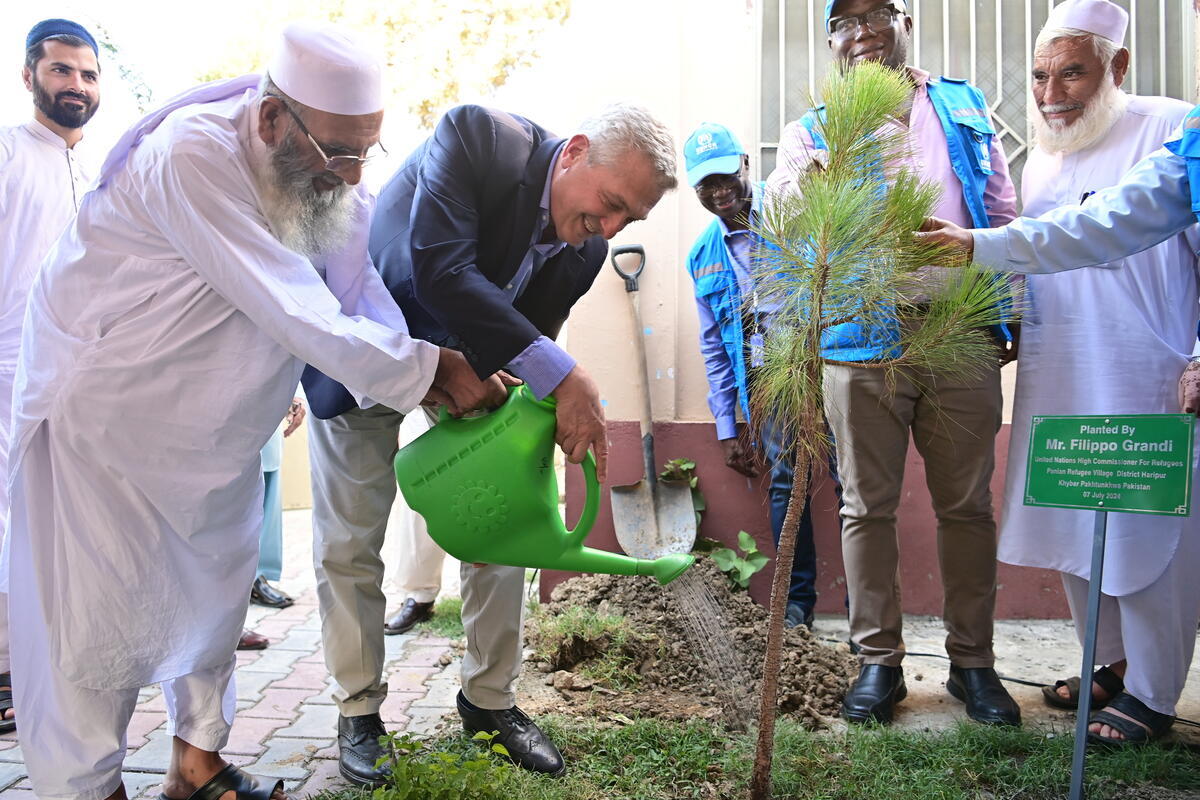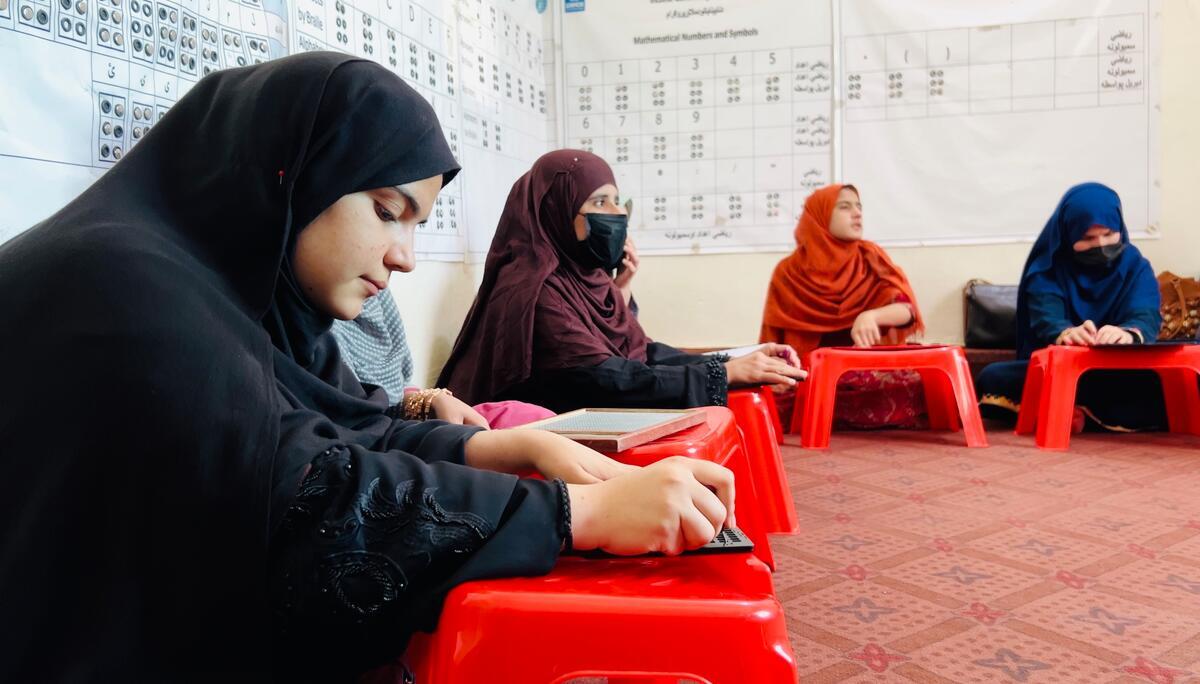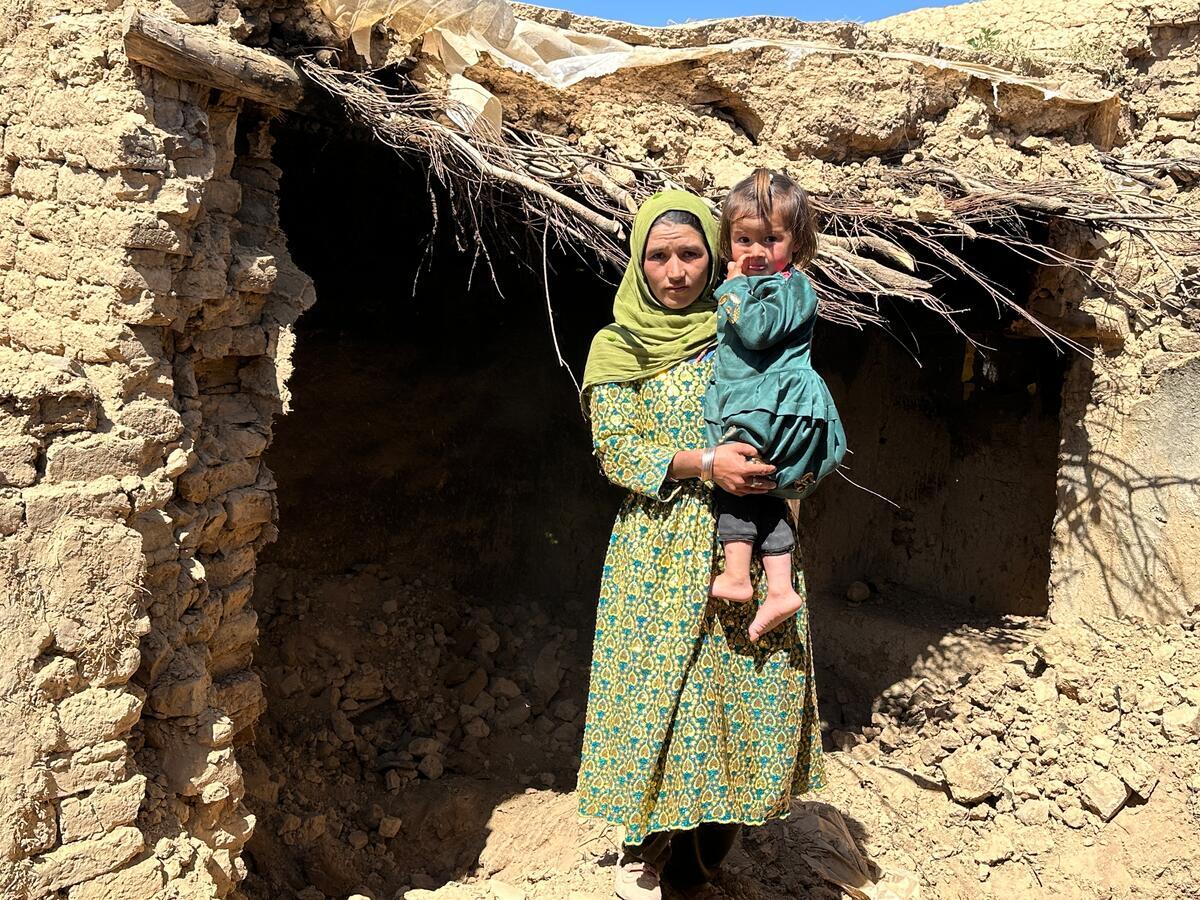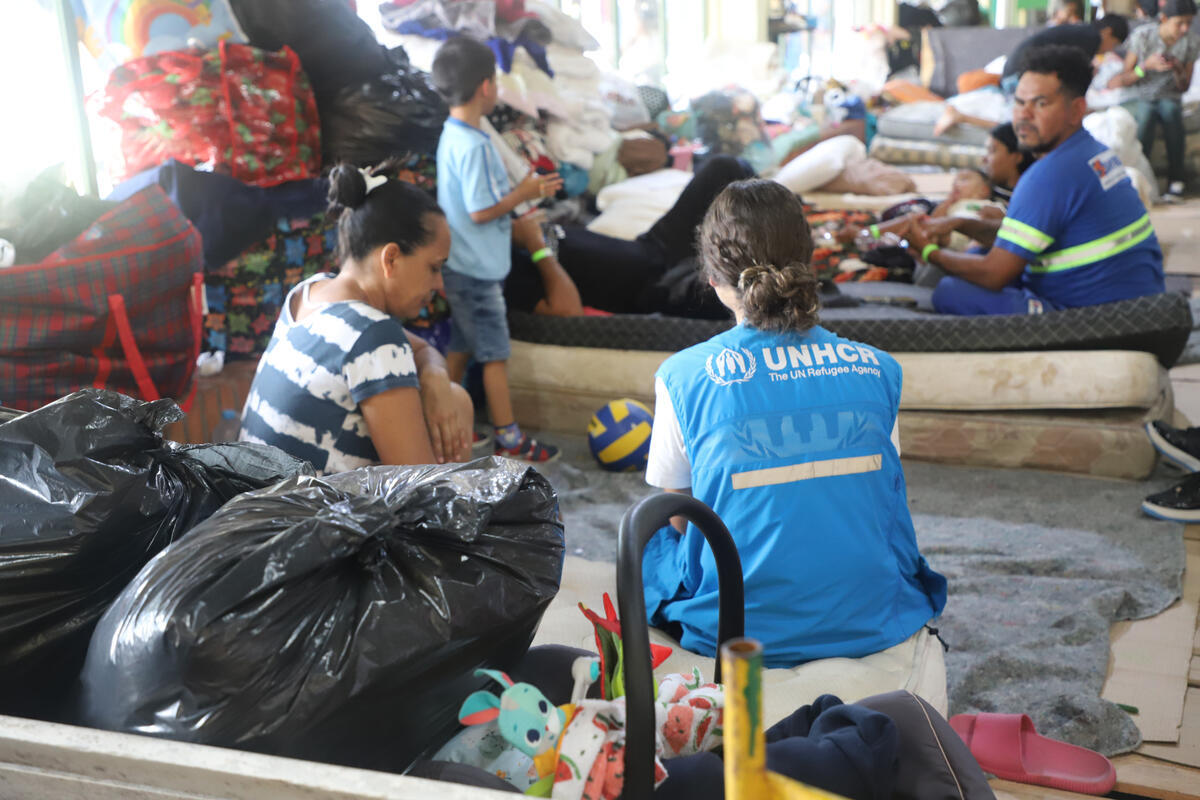Meeting looks at balance for Afghan return amid country's constraints
Meeting looks at balance for Afghan return amid country's constraints
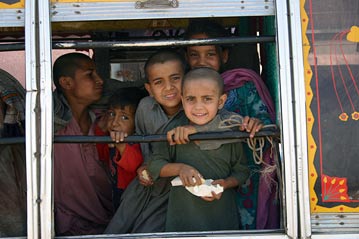
DUBAI, United Arab Emirates, June 11 (UNHCR) - Officials from Afghanistan, Pakistan and the UN refugee agency have discussed ways to maintain the voluntary and sustainable repatriation of Afghans from Pakistan in view of worsening security and humanitarian access in parts of Afghanistan.
The issues were raised at the 13th Tripartite Commission meeting between representatives of the two countries and UNHCR, held last Friday in Dubai.
"Afghanistan has been taking positive steps towards development," said Abdul Qadir Ahadi, the Afghan First Deputy Minister of Refugees and Repatriation. "But still our country faces serious challenges, such as a lack of housing, jobs, schools, clinics, security. If large numbers of Afghans return involuntarily, we cannot absorb them. They may go back to Pakistan and create more problems."
Sajid Hussain Chattha, the secretary of Pakistan's Ministry of States and Frontier Regions, agreed that the future of repatriation must be based on the policy of sustainability and a realistic assessment of the situation on the ground. However, he added that "after 27 years, we don't favour the unlimited right to stay of Afghan refugees in Pakistan. The pace of returns depends on the absorption capacity, thus we advocate for the Government of Afghanistan and the international community to intensify rehabilitation and reconstruction in Afghanistan."
More than 3 million Afghans have been assisted home from Pakistan since UNHCR started facilitating voluntary returns in 2002, making it one of the largest repatriation operations in the world. Over 2.15 million others were recently registered as Afghan citizens temporarily living in Pakistan. Some 84 percent said they had concerns about going home, mainly for reasons of security and access to land, shelter and livelihood opportunities.
Pakistan presented its three-year strategy for voluntary repatriation and camp closure during the meeting. At the previous Tripartite Commission meeting in February, all parties had reaffirmed the decision to close four camps this year - Katchagari and Jungle Pir Alizai by June 15; Jalozai and Girdi Jungle by August 31 - mainly for security reasons.
Affected Afghans have been given two options by the Pakistan government, and "both options must be respected," said Guenet Guebre-Christos, UNHCR's representative in Pakistan. "Those who choose to return home must be able to do so voluntarily, in safety and dignity. At the same time, the same principles must apply for those who cannot repatriate and choose to relocate to an existing camp in Pakistan."
Salvatore Lombardo, her counterpart for Afghanistan, appealed to the Pakistan government to ensure that the camps are closed as a result of dialogue with the elders and that the use of force must be avoided by all means.
Afghanistan provided an update of reintegration activities for returnees, focusing on land allocation as an integral part of Afghanistan's National Development Strategies. It noted that out of more than half a million applications for land allocation, 70,000 families have been selected, 41,000 plots distributed and over 5,000 families are actually living on the sites. With five pilot returnee townships now under development, demand far outstrips supply.
"We need further international support to strengthen and expand our
national development programmes in order to enhance sustainable return, especially in areas with high return potential," said Afghanistan's Ahadi.
A separate presentation on security in Afghanistan revealed that humanitarian agencies' access to areas of return has decreased dramatically, affecting the agency's ability to assist returnees especially in the south, east, south-east, and increasingly in the central and northern areas as well.
"The consistent problem of security has a big impact on the sustainability of returns," Pakistan's Chattha acknowledged. He assured that registered Afghans with Proof of Registration cards who decide not to repatriate for the moment have the right to stay in Pakistan till December 2009. He added that undocumented Afghans are considered illegal migrants, but that any deportation will abide by international human rights and humanitarian standards.

